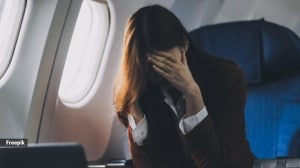The Directorate General of Civil Aviation (DGCA) will conduct a special audit of grounded carrier Go First’s facilities at Delhi and Mumbai from July 4 to July 6 prior to allowing resumption of flights by the Wadia group airline, a senior official with the regulator said Friday.
They audit will judge whether the facilities are in accordance with the resumption plan submitted by the resolution professional (RP).

“The special audit to be conducted from 4th to 6th July, 2023 shall be focused on the safety-related aspects and continued compliance of the requirements to hold an Air Operator Certificate, as well as on physical verification of the arrangements made for resumption of flight operations,” the DGCA official said. A go-ahead from the DGCA is a must for Go First to restart operations.
Story continues below this ad
In a surprise announcement On May 2, Go First had said that it was voluntarily filing for insolvency with the National Company Law Tribunal (NCLT), blaming US-based engine manufacturer Pratt & Whitney (P&W) for its financial situation. The airline said that it was “forced to apply to the NCLT” after “the ever-increasing number of failing engines supplied by Pratt & Whitney’s International Aero Engines” led to the grounding of 25 aircraft, or half its fleet of Airbus A320neo planes, and significant financial stress. Go First has not operated commercial flights since May 3 and currently, all its flights till July 6 stand cancelled.
On June 28, the budget carrier’s RP Shailendra Ajmera presented a revival plan to the regulator, following an interim funding approval by Go First’s lenders. Earlier this week, the Committee of Creditors (CoC) of the embattled airline gave an in-principle approval to an interim funding of Rs 450 crore. Go First’s CoC includes Central Bank of India, Bank of Baroda, IDBI Bank and Deutsche Bank. Go First reportedly plans to restart operations with a fleet of 26 aircraft, with four planes on standby. It plans to operate around 160 daily flights on 78 routes from 22 airports. These flights will include scheduled flights as well as charters.
In its filing with the NCLT, the beleaguered airline said that it owed a little over Rs 6,500 crore to financial creditors. The airline’s total liabilities to all creditors stood at Rs 11,463 crore, including dues to banks, financial institutions, vendors, and aircraft lessors.
While Go First’s aircraft lessors had applied to the DGCA to repossess their planes from the embattled carrier in May, the admission of Go First’s insolvency plea by the NCLT resulted in a moratorium coming into play, prohibiting recovery of any asset in possession of the corporate debtor by the owner of the asset, aircraft in this case. Had the lessors been able to take back their planes, hopes of Go First’s revival would have been extinguished.
Story continues below this ad
Between May 4 and May 9, lessors sought deregistration and repossession of 45 of Go First’s total fleet of 55 aircraft. The lessors asked the Directorate General of Civil Aviation (DGCA) to allow them to repossess and fly out the planes using their Irrevocable Deregistration and Export Request Authorisations (IDERAs). An IDERA empowers lessors to get their aircraft deregistered from the registry of the country where the lessee is based, repossess them, and fly them out, in cases like lease payment defaults. As per norms, aviation regulators are required to deregister the aircraft and allow the lessors to repossess them within five working days of a request being filed.
However, before the regulation five working days, the NCLT admitted the airline’s plea, and the moratorium came into effect.































